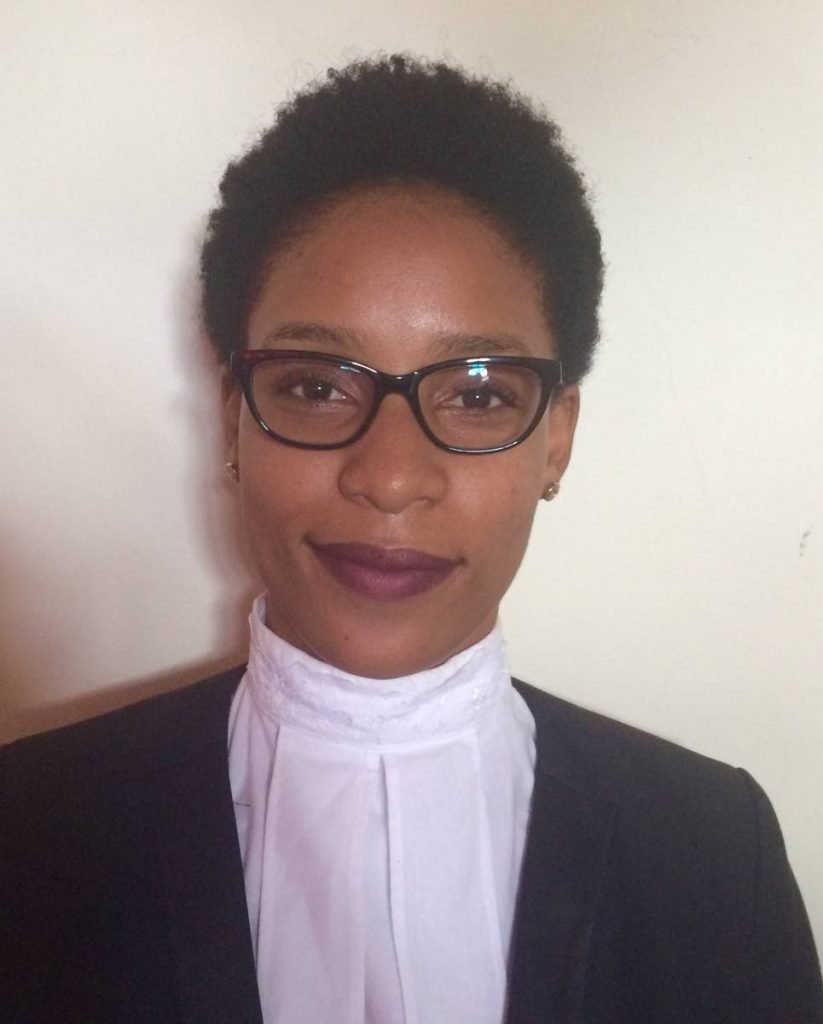Views from the bar: Society's relationship with marriage

KANISA GEORGE
The very soul of religion teaches the importance of love, friendship and the intimate bond between man and wife. Through its many teachings, religion focuses on man's faith and ability to overcome, often with a partner at his side.
The first book of Moses proclaims that a man shall leave his father and mother's house and be joined to his wife, and they shall become one flesh. These traditions aren't limited to Christianity, for both Islam and Hinduism principles are steeped in love and marriage. Natural law tenets influence the law of the land and the road to matrimonial bliss is covered by laws that govern its formation and when necessary, its demise.
In TT, marriage is governed by several legislations that reflect our society's multicultural nature. The Marriage Act chapter 45:01, the Muslim Marriage and Divorce Act chapter 45:2, the Hindu Marriage Act chapter 45:3, the Orisa Marriage Act chapter 45:4 and the Matrimonial Proceedings and Property Act chapter 45:51 all cover registration, formation, and consent issues.
For example, the Muslim Marriage and Divorce Act section 6 defines the prerequisite for marriage which dictates amongst other things that each of the parties belongs to and professes the Muslim faith or religion and be capable of contracting marriage and that the parties shall not by reason of anything contained in the Islamic law and relating to marriage be prohibited from marrying one another.
Section 9 of the Hindu Marriage Act dictates that each of the parties shall belong to and profess the Hindu faith or religion and that the parties shall not be within the prohibited degrees of consanguinity and affinity, according to the Hindu law relating to marriage.
With the turn of the century, marriage has shifted to reflect changes in society and has taken on a whole new dimension. In other ways, the union of man and woman has stayed the same, but some of these views are outcast by modern ideas of morality. The reality is, marriage has become an enigma all on its own.
In early 2000, HBO's Big Love showcased the intricacies of polygamous relationships and the unexpected benefits of having children raised by various mothers. Taboo in most parts of the world, this relationship has been in existence for decades, and some anthropologists believe it existed throughout human history.
In a study that surveyed more than 1,000 societies, it was found that of these just 186 were monogamous. Some 453 had occasional polygamy, and in 588 it was quite common. Astonishingly, a 2003 New Scientist magazine article suggested that, until 10,000 years ago, most children had been sired by comparatively few men.
In a modern-day setting, polygamy is condemned as an offence against marriage, insisting that conjugal love between man and wife must be mutual and unreserved, undivided and exclusive. But some parts of the world recognise this union and in countries like South Africa, Egypt, Eritrea, Morocco, Malaysia and Iran, polygamy is acceptable.
Of note, changes have been made internationally to marriage as it relates to the age of consent. Though still practised in rural societies, child marriage has garnered significant scorn. Child marriage is defined as a formal or informal union before 18, and the practice affects mostly girls.
Research conducted by the World Bank found that child marriage endangers girls' life trajectories in multiple ways, and they are at greater risk of experiencing a range of socio-economic issues.
Legislations in TT have shifted to reflect this change and is a prime example of the law changing with society's views on morality.
The most significant change to the image of marriage has been on the ground of same-sex union. Unbelievably, the history of same-sex marriage did not begin in the 20th century and has been allowed in ancient Egypt and Fujian's southern Chinese province for centuries. It was so prominent that researchers suggest it was commonly accepted before Christianity became the most powerful faith in the Roman Empire. Today, gay unions are incredibly prevalent owing to shifting views on the topic. After the Netherlands became the first nation globally to allow same-sex marriage, more than a dozen countries followed suit.
The law is profoundly affected by perceptions of morality and changing societal views. Though the world's view on marriage may change from time to time, marriage for most is one based on love in a modern-day context.

Comments
"Views from the bar: Society's relationship with marriage"